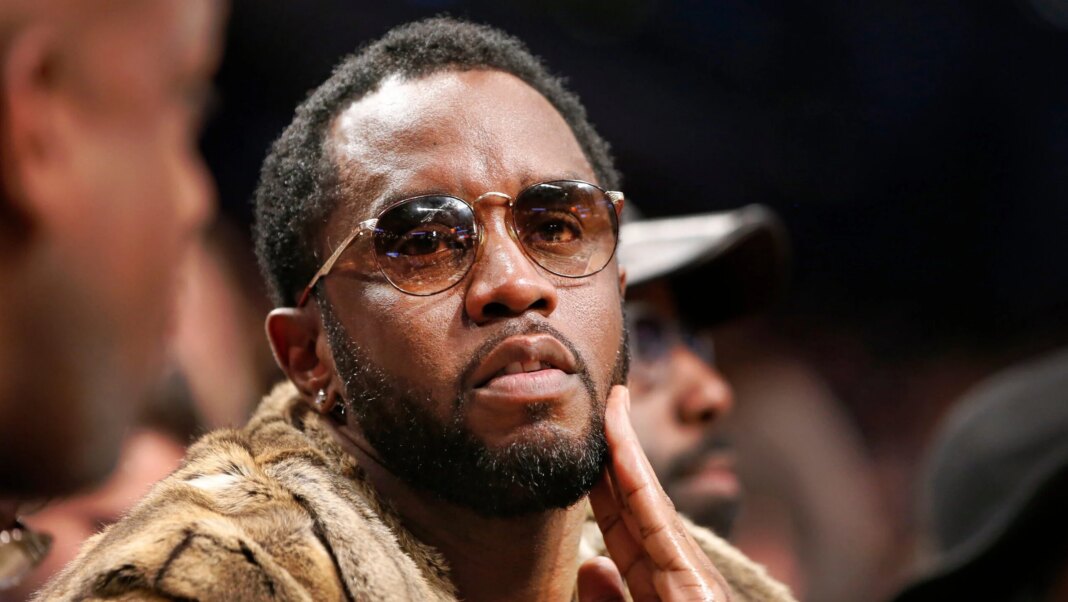Sean “Diddy” Combs: A Transformative Letter on the Eve of Sentencing
On the eve of his sentencing, Sean “Diddy” Combs communicated with federal judge Arun Subramanian, expressing how profound personal transformation has emerged from his turbulent past. In a heartfelt letter, he shared a candid self-assessment, revealing that he has come to understand himself as “broken to my core.” This acknowledgment marks a significant shift for the 55-year-old musician, who asserts that his experiences, particularly during his year in jail, have catalyzed a fundamental change in his character.
Reflection on a Painful Past
Combs recounted a harrowing journey filled with moments of despair, revealing that incarceration forced him to confront the haunting realization of his previous wrongdoings. “Over the past year, there have been so many times that I wanted to give up,” he wrote, expressing a vulnerability that resonated with the depth of his struggles. His admission that “the old me died in jail” and that a “new version” of himself has been reborn offers a glimpse into his mindset after grappling with the fallout of his September 2024 arrest on prostitution-related charges.
Despite being acquitted of sex trafficking and racketeering conspiracy charges, the gravity of his situation hangs heavily. Prosecutors are advocating for a sentence of at least 11 years, while his legal team contends that his year in jail should suffice as punishment. The unfolding narratives illustrate a man at a crossroads, wrestling with the consequences of his actions.
Taking Responsibility
In his letter, Combs displayed a stark sense of accountability. Acknowledging that he alone is responsible for his predicament, he wrote, “I have made many mistakes, but I am no longer running from them.” This sentiment is not just a rhetorical flourish; it reflects a newfound clarity that has emerged during his time in confinement. He extended apologies not only to the judge but to those he has harmed along the way, indicating a commitment to addressing the pain he caused both directly and indirectly.
Acknowledging Past Abuse
One of the more poignant sections of his letter involved an apology to his former girlfriend, Casandra “Cassie” Ventura. Combs confronted the physical and emotional abuse she endured, recalling vividly the moment his aggressive actions were caught on camera. “The scene and images of me assaulting Cassie play over and over in my head daily,” he acknowledged. His insistence on remorse and regret was challenged in a letter from Ventura, who dismissed his claims and emphasized that his fundamental nature remains unchanged.
Her sharp critique highlighted that Combs’ public remorse may not align with a profound internal change, further complicating the narrative of redemption he seeks to portray. Ventura described him as the “manipulator, the aggressor, the abuser,” emphasizing the duplicity she perceives in his public persona versus his private actions.
Impact on Victims
Combs’ apologies extend beyond venting guilt; they signal an attempt to engage with the broader implications of his actions on victims. He specifically addressed a woman known only by the pseudonym “Jane,” acknowledging the pain his actions caused her. Jane testified about an alarming series of violent encounters, painting a troubling picture of abuse and coercion. This engagement showcases a recognition of the lived realities his behavior has inflicted on others, contrasting sharply with his past denials.
Combining Reflection with Action
During his time in jail, Combs undertook various activities to facilitate his personal growth. He has immersed himself in reading, writing, and therapy while also engaging with other inmates through a course he created titled “Free Game with Diddy.” Here, he attempts to pass on the lessons derived from his mistakes, reinforcing his narrative of personal evolution. “I lost my way,” he said, expressing a desire to pivot from the past toward a future where he embodies better choices.
A Plea for Mercy
Ultimately, Combs’s letter is a plea for a second chance. He appeals to Judge Subramanian to consider the potential for change rather than treating him as merely a cautionary tale. “Make me an example of what a person can do if afforded a second chance,” he implores, signaling his aspiration for rehabilitation over retribution. Should he be granted leniency, he promises to make the judge proud and not squander the opportunity to demonstrate that transformation is indeed possible.
Through his letter, Combs navigates complex themes of accountability, redemption, and the struggle for personal growth, all while grappling with the profound impact of his past actions on himself and those around him. The journey ahead remains uncertain, but the sincerity in his words suggests a man earnestly seeking to redefine himself.



